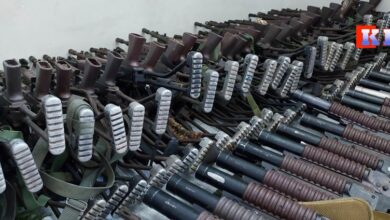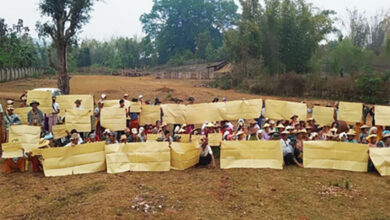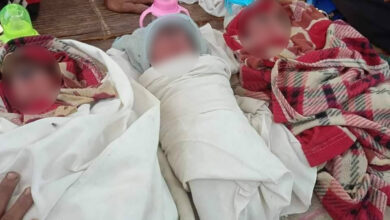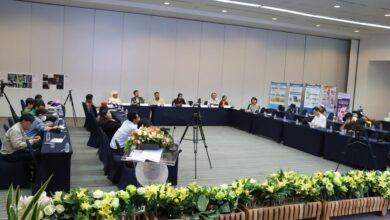Rights Groups condemn EU’s decision to end Burma sanctions

International rights groups, including Human Rights Watch and Burma Campaign UK, have criticised the EU for lifting its sanctions on Burma, saying that the move “undercuts” the impoverished country’s human rights progress.
“The EU’s scrapping of targeted sanctions on Burma is premature and recklessly imperils human rights gains made so far,” said Lotte Leicht, EU director at HRW.
On April 22, 2013, EU foreign ministers decided to end decades long bans and targeted sanctions on Burmese army and government individuals and entities.
The EU did not lift its ban on arms exports.
“EU member states are ditching measures that have motivated the current progress and gambling on the good will of Burma’s government and military to keep their word to keep reforms on track.” Lotte Leicht said.
In April last year, EU foreign ministers suspended for one year all sanctions on Burma with the exception of its arms embargo, and outlined benchmarks to gauge progress to guide a future decision on lifting sanctions.
The benchmarks included the release of all remaining political prisoners; the end of conflict, particularly in Kachin State; improved access for humanitarian assistance throughout the country; and increased assistance and improved treatment of ethnic Rohingya Muslims.
HRW says that the EU decided to permanently lift sanctions this month despite many of these benchmarks not yet being met.
“The EU should promptly adopt a comprehensive policy defining its engagement with Burma to avoid further boosting abusive military officials and companies while advancing respect for the rights of everyone in Burma,” Leicht said.
In Kachin State, a fear of continued fighting and abuses has kept more than 80,000 displaced Kachin from returning to their homes despite a February ceasefire between the government and the rebel Kachin Independence Army (KIA).
Government forces continue to restrict humanitarian access to displaced persons in KIA-controlled areas, who urgently need humanitarian assistance.
HRW has also accused the government of ongoing “ethnic cleansing” against the Rohingya minority in Arakan State and the displacement of over 125,000 people, in a just-released report, ‘All You Can Do Is Pray.’
“The lifting of EU sanctions could not come at a worse time for the Rohingya at risk in Arakan State,” Leicht said. “The EU should now redouble its efforts to get aid to those already suffering from aid shortages and press hard on the government to end its repressive policies and practices against the Rohingya.”
Burma Campaign UK, a human rights advocacy group, backed up HRW’s condemnation. “Not one of these benchmarks has been met, and in the case of the Rohingya the situation has significantly worsened.” The group said.
“The lifting of sanctions when even the EU’s own benchmarks have not been met represents a downgrading of human rights as a priority,” said Zoya Phan, Campaigns Manager at Burma Campaign UK.
“European leaders should have the courage to go and explain this decision to political prisoners still in jail, to ethnic Kachin women who have been raped by Burmese Army soldiers, and to mothers in camps for the internally displaced who have watched their child die because of Thein Sein’s restrictions on aid delivery. Ask them how ‘remarkable’ the changes are.




